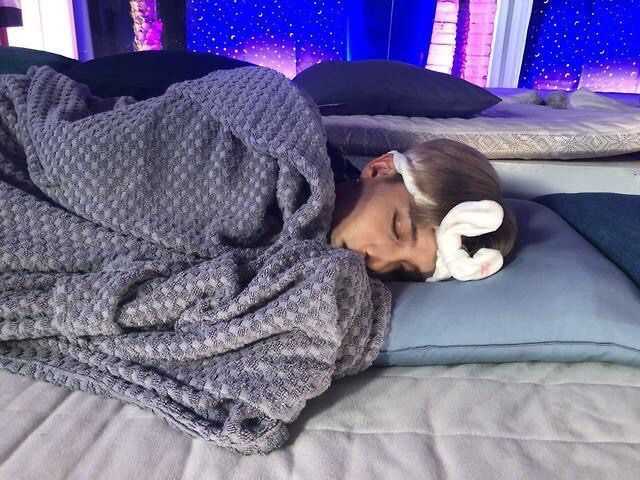After the birth of my son, I could only sleep in cooling memory foam mattress of two or at most two and a half hours at a time for months – then the little guy was hungry again. Despite maternal feelings of happiness and hormonal intoxication, this permanent lack of sleep was a massive burden.
I was irritable, had no energy for hobbies and friends, suffered from headaches and tension and in winter I picked up every infection. One day I was so exhausted that I had a crying fit at lunch.
Now the phase in which a hungry newborn baby has to be taken care of is manageable.
People with chronic sleep problems, however – and that is about 15 percent of the population in western industrialized countries suffer permanently from the social, health and even occupational consequences of their lack of sleep, from depression to type 2 diabetes and even job loss.
Sleep deprivation is not known as a method of torture for nothing.
In short: Deep, good sleep in sufficient quantity is the basis for a happy, fulfilled life.
But what do you do when sleep just won’t come, when you wake up at 4 a.m. and can’t fall asleep again until the alarm clock rings? First of all, physical causes should be excluded and the current life situation should be evaluated.
What is burdening me currently or for a long time – privately, professionally, financially? Therapies, spa stays, self-help offers can defuse acute problems and show long-term solutions.
In the long term, however, yoga is a very helpful method for problems with falling and staying asleep. Yoga not only fights the main cause of insomnia, stress, very effectively. Yoga also helps you to re-sort your life.
The Indian teaching consists of more than just physical exercises – besides philosophical concepts and psychological knowledge, it also includes practical methods such as meditation, breathing exercises and nutritional principles.
Asanas
Almost every yoga class has a stress-reducing effect and thus contributes to better sleep. Physical exercise, especially in combination with deep breathing and focused concentration, has been proven to reduce stress hormones.
However, the so-called insomnia prophylaxis is particularly effective, as it has a calming effect on the nervous system. By prevention, yogis understand all exercises in which trunk and legs come closer together.
The best known preventative exercises are the standing forward bend (Uttanasana), the sitting forward bend (Paschimottanasana) and the head-knee posture (Janu Sirsasana). If you are restless, these exercises should be kept longer in the evening.
Meditation
Meditation is holiday for the head, a reset button for the mind – and thus valuable psycho-hygiene before going to bed.

And meditating is actually not difficult at all: Simply sit down regularly at the same time comfortably and with an upright back – and stay seated. If you want, concentrate on your breath and think “On – Off” or “Sat – Nam”.
Or find another mantra that helps you to get off the merry-go-round of your thoughts. In time, you will find that you can become more and more detached from your thoughts and you will begin to observe them from a distance. Then it becomes calmer inside you – and a calm mind sleeps well.
Breath
There is hardly a simpler method than the breath to counteract physical and mental over excitement. If you cannot fall asleep, breathe deep into your stomach.
Follow the air you breathe through your nose, into the windpipe up to your chest, and then let your stomach soften and let the air flow into it.
This deep abdominal breathing (also known as full yoga breathing) is relaxing and grounding. It is also helpful to let the exhalation become longer than the inhalation – this activates the parasympathetic nervous system and soothes the nervous system.
If these simple breathing techniques do you good, then try the balancing alternate breathing (Anuloma Viloma), in which you alternately inhale and exhale through the left and right nostril.
It is best to learn them from a yoga teacher or with the help of our pranayama videos and practice regularly for several minutes before going to bed.
Yogic diet
The importance of eating habits for stress and sleep disorders is often neglected. In yoga there are some simple dietary rules, but they can have a great effect.
Especially the “Rajas”-principle is interesting here. Rajas” are all foods that promote and stimulate activity: alcohol, coffee, very salty and spicy foods, onions and garlic.
From a nutritional point of view, it can be added that all foods containing industrial sugar and refined white flour should also be avoided, as they lead to a sudden rise in blood sugar levels and thus activate

